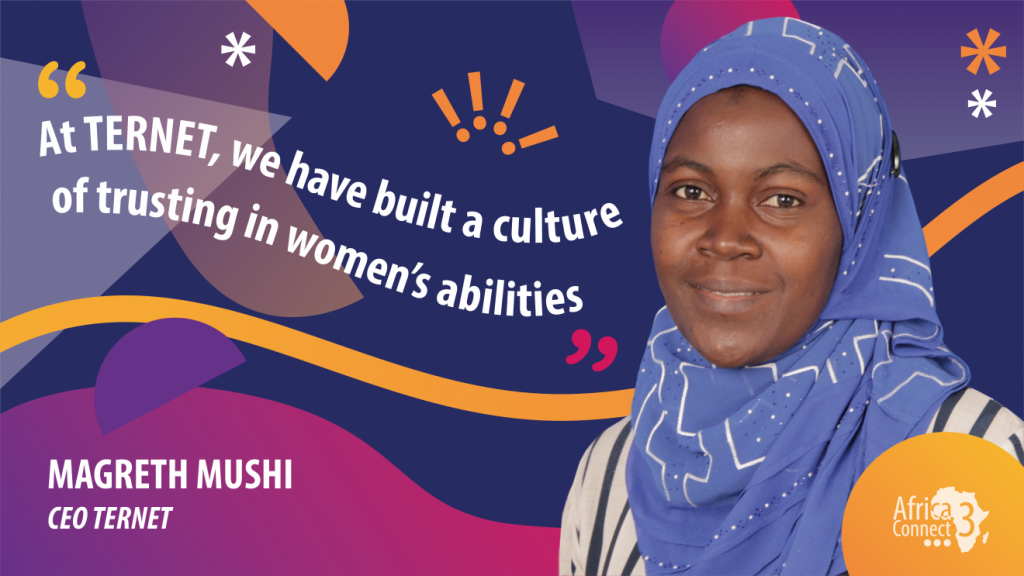TheAfricaConnect3 kicks off the #womeninSTEM campaign with Dr. Magreth Mushi, Chief Executive Officer of the Tanzania Education and Research Network (TERNET), a member of the UbuntuNet Alliance. She is one of the two women NREN CEOs of the 16 members of the Alliance. A holder of a PhD in Network Security from North Carolina State University in USA, she is also a lecturer in Computer Security and Networking at the Open University of Tanzania and a member of the UbuntuNet Alliance Board of Trustees. We caught up with Dr. Mushi who shared her experiences on being a woman in a male dominated field.
Dr. Mushi, what or who inspires you to work with R&E institutions in Tanzania to harness the power of collaborative ICT and why?
During my PhD studies at North Carolina, I came to learn about National Research and Education Networks and had a chance to interact with some of them including KENET, the NREN of Kenya. I came to realise how much R&E institutions can achieve if people within their countries put their energy together and I saw many possibilities for the NREN as a platform for enabling digital transformation in research and education. Looking at the digital gap in Tanzania, I decided to join the NREN to try to help address the digital challenges in our institutions. I am inspired by working and collaborating with peers within and outside Tanzania in transforming research and education.
How would you explain your STEM field, network connectivity, to young girls?
Honestly, it has been a satisfying and rewarding journey for me, though difficult at times. I like to encourage girls that the STEM field is one that both boys and girls can venture into and succeed. Unfortunately, girls have been facing obstacles when trying to venture into the field because of harmful social norms, beliefs and practices that confine women mostly to the domestic sphere. It is mostly upon the girls themselves to break these norms and follow their dreams.
STEM fields have a reputation for being “all-men” clubs. What are some of the challenges of being the female CEO in a network organisation?
Being a woman, my society expects me to take care of the family (raising children, family and neighbours relationships, etc.). In addition to these roles, I am expected to function like the male CEOs. This places an extra burden on me and women like me. It is not easy to balance these roles. I am grateful for the support of my network, which includes my husband, parents, siblings, sisters-in-law, friends and colleagues. Some of the things that are considered challenges for others have been opportunities to me. For example, the undermining of the capability of women has motivated me to prove that women are also capable of achieving success in this field.
Is TERNET undertaking any specific action to advocate for women empowerment in STEM? If so, please tell us more about the successes and challenges you faced?
At TERNET we have built a culture of trusting in women abilities and that’s why we have 11 women out of 23 staff and interns. We have established a Trainee Engineer Program which gives more emphasis to female candidates. Even the TERNET Network Infrastructure Manager is a beneficiary of this program.
And for anyone who’s not convinced yet, why is it important for African women to have a presence in NRENs?
Representation of African women in sciences and engineering is still very low, therefore more role models are necessary. NRENs like any other organisation need diverse talents to thrive and increase knowledge.
A heartful thank you to Dr. Mushi for sharing her story.

